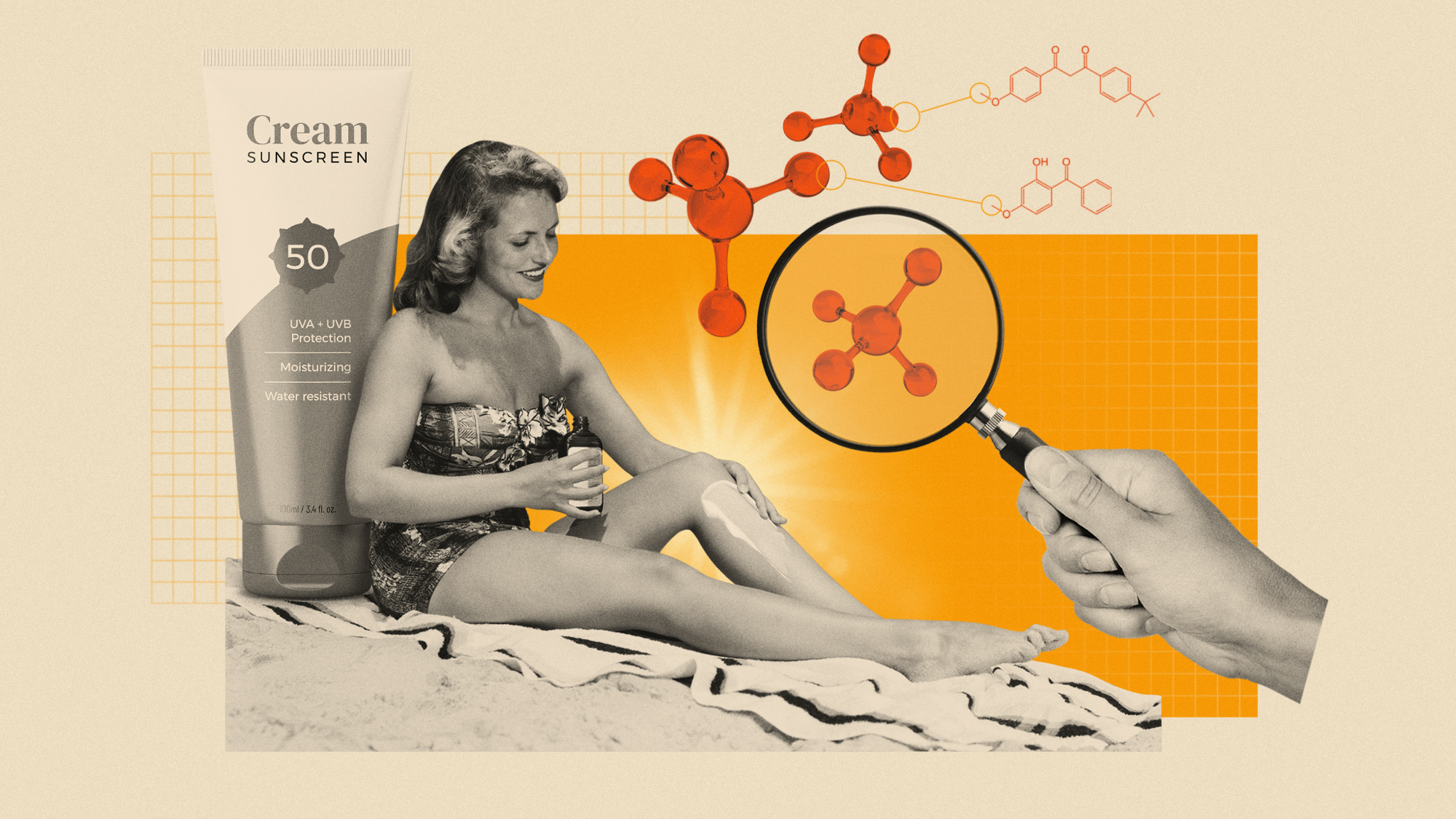The truth about sunscreen
The science behind influencer claims that sun cream is toxic

A free daily email with the biggest news stories of the day – and the best features from TheWeek.com
You are now subscribed
Your newsletter sign-up was successful
Ditch the sun cream, it's dangerous – or so say increasing numbers of influencers. To the horror of dermatologists and skin cancer specialists, the internet is being flooded with claims that the ingredients in sunscreen are harmful and may even cause cancer, rather than helping to prevent it.
Here is what the evidence tells us about the anti-sunscreen arguments.
How does sunscreen work?
Too much exposure to ultraviolet light can damage the DNA in skin cells, leading to mutations that become cancer. UV light exposure also causes premature skin ageing and wrinkles. Sunscreens contain organic or inorganic filters that absorb UV light and then release it as heat. (Some of those filters reflect or scatter UV light, too.)
The Week
Escape your echo chamber. Get the facts behind the news, plus analysis from multiple perspectives.

Sign up for The Week's Free Newsletters
From our morning news briefing to a weekly Good News Newsletter, get the best of The Week delivered directly to your inbox.
From our morning news briefing to a weekly Good News Newsletter, get the best of The Week delivered directly to your inbox.
High-quality evidence, accumulated over many years, has consistently shown that using sun cream significantly reduces the risk of developing both melanoma and non-melanoma skin cancer.
Why do some influencers claim it's harmful?
Anti-sunscreen influencers, who sometimes call themselves "sun nutritionalists", make varying claims but they all come down to a general belief that sun protection products are far more harmful than the "ancestral" custom of soaking up the sun's rays au naturel.
Some claim that sun creams contain toxins that can disrupt hormones; others that they cause vitamin D deficiency. The most extreme believe they cause cancer and are part of a "broader conspiracy designed to 'keep people sick'", said The Independent.
What does the science say?
There's "zero evidence" for the claim that sunscreens cause cancer, Antony Young, professor of experimental photobiology at King's College London, told The Guardian. "Skin cancers are caused by mutations, and almost all skin cancers have a mutation that is highly UV specific."
A free daily email with the biggest news stories of the day – and the best features from TheWeek.com
Studies by Young and his team also show that even using sunscreen every day has little impact on your body's ability to make vitamin D.
The claims around the toxicity of sun cream formulations are more complicated to unpack, though. They probably originate from misinterpretations of two studies. In the first, from 2001, scientists found that baby female rats fed on a UV-filtering chemical compound called oxybenzone had malformed uteruses. But the oxybenzone quantities were unfeasibly large: to reach the same level of absorption, a human would have to apply a sunscreen containing 6% oxybenzone (the maximum percentage found in formulations sold in the UK) every day for 277 years, said BBC Future.
The second study, from 2019, analysed the bloodstream of people who'd applied large amounts of sun cream all over their body, and found traces of oxybenzone and other UV filters at a level that exceeded the US Food and Drug Administration safety threshold for sunscreen testing. The study authors said their findings shouldn't stop people using sunscreen, because for the purposes of the study their subjects were slathering on sunscreen in amounts few people would at the beach.
Subsequent research has found no evidence that oxybenzone in sunscreen is harmful but, as a precaution, the amount of oxybenzone in sunscreen sold in the UK and EU will be reduced to 2.2% from 2026. "Sun nutritionalists", of course, see this precautionary move as confirmation of their claims
Is mineral sunscreen safer than chemical sunscreen?
There's not a clear answer to this one – partly because many sun creams are a mixture of both.
Chemical-based (organic) sun creams are soluble, so feel smooth and look clearer than thicker, whiter mineral-based (inorganic) ones. Mineral sun creams are sometimes called "physical sunscreens" and deemed safer because they are thought, incorrectly, to block UV light only by reflecting or scattering it; in fact, modern mineral formulations primarily absorb UV light on or just below the skin's surface in pretty much the same way as chemical-based sun creams.
However, the solubility of chemical sun creams does mean some filters may find their way into the bloodstream. So far, there's no good evidence that this is harmful – unlike exposing your skin to UV light without protection.
Helen Brown joined The Week as staff sub-editor in 2024. She edits and fact-checks articles, and also writes the odd one or two. She has a particular interest in health and sport, and has written a book on parenting. She read Classics and Modern Languages at the University of Oxford, where she wrote for the student paper, Cherwell, and then studied magazine journalism as a postgrad at City University, London. After working as a local newspaper reporter and a sports researcher for the BBC, she cut her sub-editing teeth at Radio Times, before becoming chief sub-editor at Cosmopolitan and then the health-and-fitness magazine Zest. She also wrote for The Guardian, The Independent and the Daily Mail.